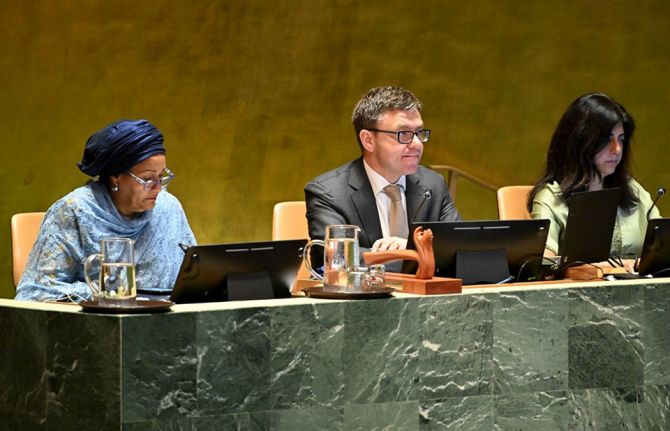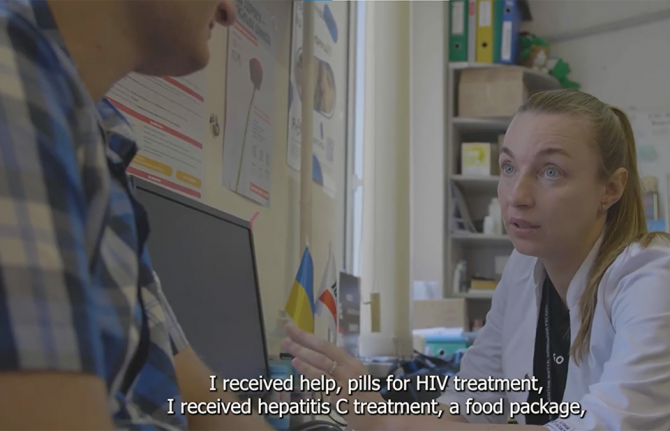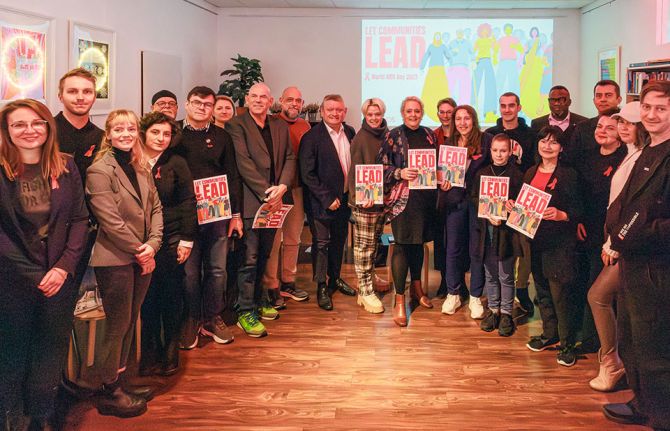

UNAIDS Deputy Executive Director Luiz Loures (second from right) with Tonio Borg, EU Commissioner for Health (second from left); Igor Radziewicz-Winnicki, Undersecretary of State for Poland (centre); Maia Rusakova, Director, Regional NGO Stellit, Russia; and John F. Ryan Acting Director, Public Health Directorate, Directorate General for Health and consumers, European Commission (far left).

Tonio Borg, EU Commissioner for Health.
Debrief
EU Commission for Health reiterates commitment to HIV
20 March 2014
20 March 2014 20 March 2014The European Commissioner for Health, Tonio Borg announced on 18 March to take forward the action plan on HIV in the EU and neighbouring countries for 2014-2016—a strong indication of the continuing commitment of the EU to address the AIDS epidemic as a priority.
The action plan on HIV will allow future work to focus on a unified approach to the elimination of discrimination, enhancing political leadership of the EU in this area and improving access to HIV services in particular for vulnerable groups.
The announcement was made at a conference held by the European Commission in Brussels to identify the causes of the growing inequities in accessing healthcare in the European Union. The conference—which focused on three key areas including equity, HIV, and the health of people in vulnerable situations—aimed to define the basic principles and values for improved equity and reduced discrimination when accessing health services.
Successful strategies in addressing the health needs of people in vulnerable situations were shared and the perspectives of a wide range of groups with particular needs put forward including people from ethnic minorities, irregular migrants, older people and Roma people.
HIV prevalence in Europe is increasing in key populations at higher risk, especially among men who have sex with men. In Eastern Europe the epidemic is also growing among people who inject drugs, their sexual partners and among sex workers.
Participants
Opened by Viviane Redding, Vice-President of the European Commission and by European Commissioner for Health, Tonio Borg, the conference was attended by high-level participants from government including the Ministers of Health of Greece, Latvia and Undersecretary for Health of Poland and civil society organisations in the European Union. UNAIDS Deputy Executive Director, Luiz Loures also participated in the event.
Key issues
- Discrimination against specific groups and populations in the European Union including gay, lesbian, bisexual or transgender people and migrant populations is blocking access to HIV prevention and treatment services as well as early testing and timely diagnosis of HIV.
- Discrimination also affects public health policies for other chronic diseases.
- An EU wide strategy remains a priority as this is a transnational issue
- The empowerment and engagement of key populations as political voices and partners at all levels remain essential and should be reinforced and anchored within a broader strategy.
- Further review of progress and identification of next steps in the EU is needed in the lead up to the Dublin+10 Conference—which will mark the 10th anniversary of the Dublin Declaration on Partnership to Fight HIV/AIDS in Europe and Central Asia.
Quotes
“Discrimination is not a rhetorical issue—it costs money and lives and needs to be addressed through our united contribution as a mainstream issue.”
“Diseases don't know borders and this is why an EU strategy is essential.”
“We stand united in our determination to improve fairness in health.”



